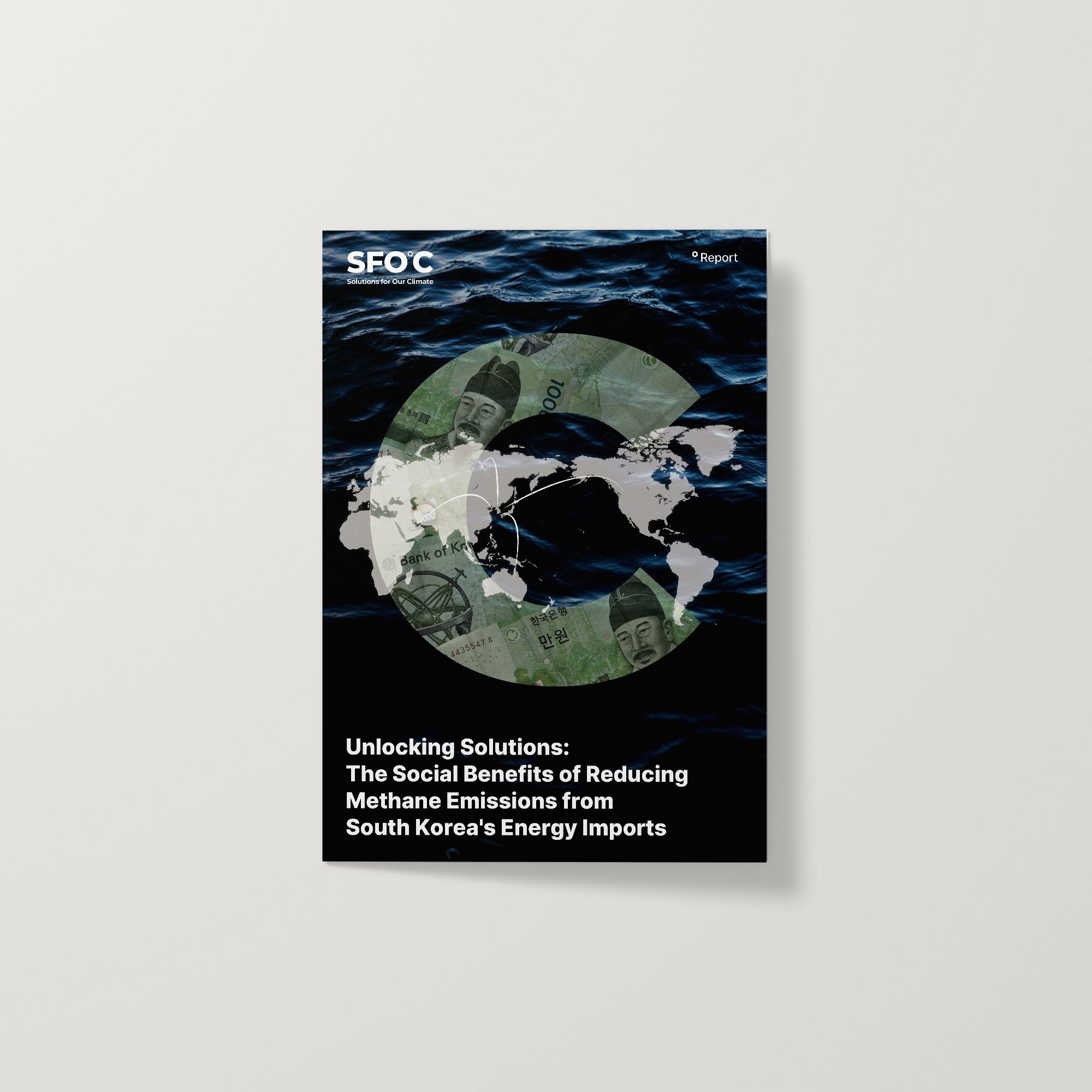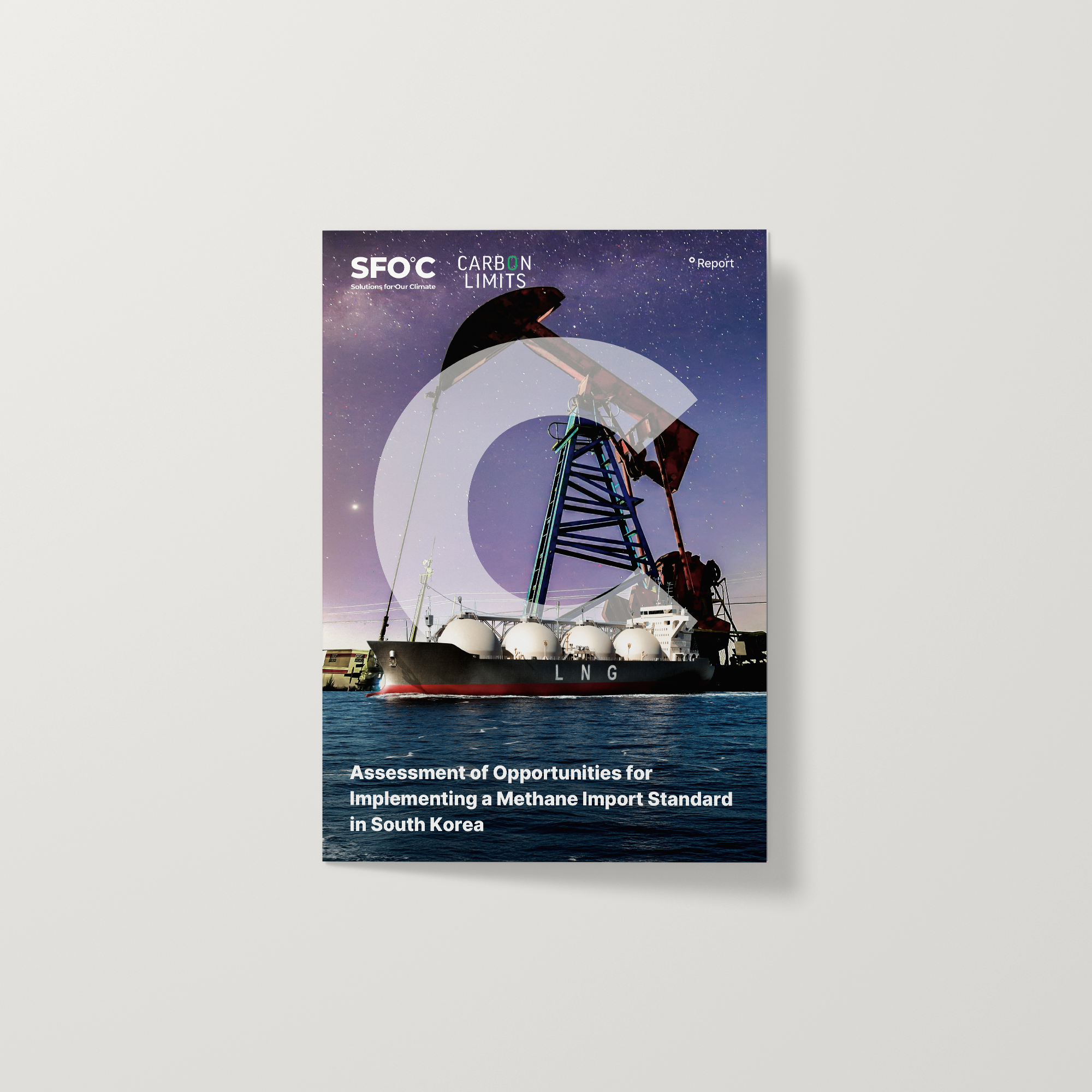Methane emissions undermine climate claims of South Korea’s Boryeong Blue Hydrogen Project
May 27, 2024 – A new study by Solutions for Our Climate (SFOC) reveals that South Korea’s Boryeong Blue Hydrogen Project, led by Korea Midland Power Company (KOMIPO) and SK E&S, and touted as the world’s largest, will result in significant methane emissions. This finding contradicts claims by the government and the energy industry that blue hydrogen is a climate solution.
The plan to use Boryeong’s gas-based, blue hydrogen for co-firing is a major concern. The $4 billion initiative aims to produce 250,000 tons of blue hydrogen annually, mostly for power generation at three existing and one new gas-fired power plants.

While the plan aims to replace 30% of gas use at these facilities, the expected reduction in emissions is only 11%, according to the study. The new gas plant, with a planned co-firing rate of 50%, is expected to achieve only a 22% emissions reduction. This is mainly due to the lower amount of energy that hydrogen can produce per volume of fuel as compared to gas. Additionally, the three power plants, scheduled to retire in 2027, are expected to have their operation extended due to hydrogen co-firing.
Moreover, the study warns that emissions from blue hydrogen production will offset much of the emissions reduction from co-firing, raising greenwashing concerns. Methane emissions during the lifecycle of blue hydrogen production could reach up to 3.85 million tons, equivalent to emissions from 1.28 million cars. With a 20-year Global Warming Potential (GWP) 83 times that of CO2, methane poses a severe climate threat.
“To meet its carbon neutrality goals, South Korea must shift from blue to green hydrogen. Green hydrogen, produced using renewable energy, offers a genuinely sustainable alternative and should be prioritized for hard-to-abate sectors like steel manufacturing. Without this shift, the Boryeong project risks leading South Korea into a high-emission trap, undermining global climate efforts and exacerbating the crisis it aims to solve,” said Seokhwan Jeong, a researcher at SFOC and the author of the study.
The South Korean government is implementing a clean hydrogen certification standard this year to determine which hydrogen-generated electricity can be traded in the country’s clean hydrogen bidding market, which is opening this year.
The current standard excludes key emission sources, such as shipping the LNG need for hydrogen production and transporting the captured CO2 to carbon storage facilities overseas. Experts argue this favors blue hydrogen projects like Boryeong, which will receive LNG from the emission-intensive Barossa gas project near Australia and ship the captured CO2 back to Australia.
The report also points out that the financial burden of hydrogen projects will likely be passed on to consumers through higher electricity prices. Hydrogen power generation projects that win bids in the market also receive reimbursements for fixed and fuel costs, including the cost of LNG, blue hydrogen production, carbon capture storage (CCS), hydrogen pipelines, and generator retrofitting for hydrogen.
“Such reimbursement schemes create a financial incentive for fossil fuel companies to disguise their dirty hydrogen projects as clean, diverting resources from developing green hydrogen technologies,” added Jeong.
“As the global community looks to hydrogen as a cornerstone of the future clean energy landscape, South Korea's approach will be closely watched. The decisions made now will have lasting implications for both the nation and the global effort to combat climate change.”
ENDS.
Solutions for Our Climate (SFOC) is an independent non-profit organization that works to accelerate global greenhouse gas emissions reduction and energy transition. SFOC leverages research, litigation, community organizing, and strategic communications to deliver practical climate solutions and build movements for change.
For media inquiries, please reach out to:
Euijin Kim, International Communications Officer, euijin.kim@forourclimate.org
Share this insights



































![[Brief] South Korea’s international public finance continues to block a just energy transition](https://content.sfoc.tapahalab.com/images/research/RC5Kime.jpg)





![[Report] Methane Reduction Strategies and Regulations in South Korea: Current Issues and Policy Recommendations](https://content.sfoc.tapahalab.com/images/research/xxJgdme.jpg)

![[토론회] 한국형 녹색분류체계(K-Taxonomy), 무엇이 녹색경제활동인가](https://content.sfoc.tapahalab.com/images/research/bn8jdme.jpg)
![[이슈 브리프] 탄소포집, 이용 및 저장기술(CCUS) 현황과 문제점](https://content.sfoc.tapahalab.com/images/research/SWESdme.jpg)





